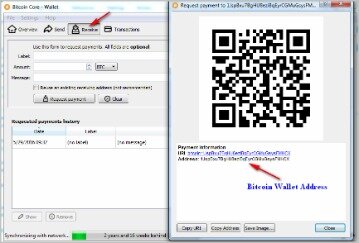If the mining activity does not amount to a trade, the pound sterling value of any cryptoassets awarded for successful mining will be taxable as income with any appropriate expenses reducing the amount chargeable. A trade in cryptoassets would be similar in nature to a trade in shares, securities and other financial products. Therefore the approach to be taken in determining whether a trade is being conducted or not would also be similar, and guidance can be drawn from the existing case law on trading in shares and securities. This means a person who holds exchanges tokens is liable to pay UK tax if they are a UK resident and carry out a transaction with their tokens which is subject to UK tax. HMRC considers that throughout the time an individual is UK resident, the exchange tokens they hold as beneficial owner will be located in the UK.
Does cash APP report Bitcoin to IRS?
Yes. Cash App is required by law to file a copy of the Form 1099-B to the IRS for the applicable tax year.
If the trade is carried on through a partnership, the partners will be taxed on their share of the trading profit of the partnership. If a person or business’s activities amount to a trade, the receipts and expenses will form part of the calculation of the trading profit. As with the tax analysis of other types of business the question of whether a trade is being carried on is key in determining the correct tax treatment.
Merchant where cryptocurrency is accepted you can receive cryptocurrency for good and service provided. There are growing number of outlets in UK already accepts cryptocurrency payment.
Tax
This inquiry is examining the potential impact of distributed ledger technology—such as blockchain—on financial institutions, including the central bank, and financial infrastructure. It is considering how regulation of crypto-currencies could be balanced to provide adequate protection for consumers and businesses without stifling innovation. Somewhat strangely, its remit makes no mention of tax, but I suspect that its final report may do so. Digital wallets on users’ computers may be attacked by malware or ransomware or deleted as a result of user error. Bitcoins belonging to a user exist in a ‘digital wallet’, either in the cloud or on the user’s computer. They can also be created by using computers to solve complex cryptographic puzzles in a process designed to preserve the integrity of the system and known as ‘bitcoin mining’.
Donald Drysdale cautions practitioners, accustomed to working with fast-changing tax laws, that they should be particularly wary of how transactions in crypto-currencies are taxed. James assists entrepreneurs and wealthy families put in place the correct business structures, implement succession planning and advise on all aspect of property taxation. International matters – If the client trades internationally, things could become complex as there is no consensus as to the treatment of bitcoin in different jurisdictions. Even if it is accepted that there is a trade, HMRC will sometimes argue that the trade is not being undertaken on a commercial basis, and/or with a view to the realisation of profits of the trade. However, Marson v Morton and other case law indicates that the badges of trade should not be used as a checklist to conclude whether a trade does exist. The above HMRC guidance also urges caution about relying too heavily on the badges of trade.
- If you have used a cryptocurrency to purchase software or gaming points, it is unlikely that you have made a profit and HMRC will not be worried about you.
- HMRC does not consider the buying and selling of cryptoassets to be the same as gambling.
- If Income Tax has been charged on the value of the tokens received, section 37 Taxation of Capital Gains Act 1992 will apply.
The calculation of businesses’ taxable profits for the purposes of filling in a tax return is undertaken in pounds sterling, but tokens can be traded on exchanges that may not use pounds sterling . HMRC say if the transaction does not have a GBP value an appropriate exchange rate must be established in order to convert the transaction to sterling and taxpayers must keep records of the valuation methodology. In November 2019, HMRC released new guidance dealing specifically with the tax treatment of exchange tokens for businesses. The tax treatment of security tokens and utility tokens will be addressed in future HMRC guidance. The current guidance also addresses how to deal with blockchain forks and airdrops. HMRC have issued guidance on the location of exchange tokens such as BTC which is primarily relevant for non-domiciled individuals calculating their tax liability on the remittance basis and for Inheritance Tax purposes. If your gains are taxed as capital, you should obtain tax relief on the direct costs of buying and selling the cryptocurrency investment.
How Can Bitcoins Be Taxable?
Due to the various rules in calculating pooling the CGT calculations can often become time consuming and costly. We offer a range of offshore services including fiduciary, fund and tax services from our offices in Guernsey, Switzerland and Dubai. The IRS’ approach in its literature, is to take a firm hand and they threaten criminal prosecution of those who attempt to avoid tax on cryptocurrencies. The IRS have also taken steps to determine how to value cryptocurrency at the time of a transaction, and calculate the tax. They use a ‘reasonable manner’ valuation test as defined in the IRS Notice .
Whether mining will be considered a taxable trade will involve the consideration of degree and frequency of activity; level of organisation; risk; and commerciality. The tax may be one or more of Capital Gains Tax, Corporation Tax, Income Tax, National Insurance contributions, Stamp Taxes, VAT. Income tax will be judged by the pound sterling value of the cryptoasset at the time of receipt. HMRC defines utility tokens as providing the holder with access to particular goods or services on a platform using distributed ledger technology. A comprehensive collection of resources containing tax calculators, tax rates and deadlines, essential business factsheets, the latest news and more. There is no VAT payable or chargeable when you buy, sell, exchange, or transfer Bitcoins.
If you have any specific queries relating to cryptoassets, please speak to your usual Saffery Champness partner or contact Robert Langston, National Tax Partner. Our people offer a broad range of services to our clients, including Accounting, Audit and Assurance, Business Advisory, Corporate Finance, Forensic and Litigation, Outsourcing, Tax, Trusts and VAT. As a top 20 UK accountancy firm, and advisers to some of the UK’s wealthiest individuals, Saffery Champness is a dynamic and exciting place to launch your career. As we have seen with other sectors of the UK’s governance, it is good to see that HMRC are willing to take a dynamic approach to cryptocurrency when necessary, rather than trying to drive a round peg into a square hole. In 2014 after complaints from UK entrepreneurs that charging VAT on cryptocurrencies would make them less competitive in a global market, HMRC reversed its decision and exempted cryptocurrencies from VAT. A Blockchain fork is when there is a change in the Blockchain protocol and different parties diverge from common rules.
Individuals would need to buy and sell Bitcoin on such a regular occurrence, with such a high level of organisation that HMRC deem a trade to be taking place. As a result, when Bitcoins are disposed of Capital Gains Tax rules will apply. Although Bitcoin is a form of digital currency, HMRC does not consider it to be a currency or money. There are numerous different types of coins but for this article we will refer to all coin types as Bitcoin as these are the most well-known. Most crypto exchanges such as take advantage with customers funds because they feel these customers don’t know how to get their funds back, But trust me there are hidden ways you can get your lost funds back from the broker.
Stamp Duty Tax Bitcoin (cryptocurrencies)
This is valid, of course, as long as your cryptocurrency activities pass the non-commercial losses test, which states that your losses must be more than a hobby or lifestyle choice. Bear in mind that at the end of each financial year you must also declare any crypto you are holding as when held by a business, it counts as a trading stock when evaluating your accessible income. If so the value obtained will be subject to income tax, usually as income other than trading although in extreme cases HMRC might try to argue that it is trading income with consequent NIC obligations. Some unfortunate individuals have lost their Bitcoin access “keys” and may never be able to recover their investment. Sadly HMRC does not regard this as a disposal on which a capital loss can be claimed on the basis that the asset is still there – you just can’t access it. In the vast majority of cases, profits made on Bitcoin will be treated as a capital gain with the same rules applying as for shares.

The private key still exists as part of the cryptography, albeit it is not known to the owner any more. This means that misplacing the key does not count as a disposal for Capital Gains Tax purposes. There are special rules for losses when disposing of cryptoassets to a ‘connected person’.
What Is Hmrc View On Bitcoin And Cryptocurrencies
If it can be shown there is no prospect of recovering the private key or accessing the cryptoassets held in the corresponding wallet, a negligible value claim could be made. If HMRC accepts the negligible value claim, the individual will be treated as having disposed of and re-acquiring the cryptoassets they cannot access so that they can crystallise a loss. If an individual misplaces their private key , they will not be able to access the cryptoasset.
What is the cheapest way to buy Bitcoin?
Coinbase is the quickest and cheapest way to buy Bitcoin out of the three brokers I’ve talked about. CEX has better trading options, and Coinmama is better for privacy. However, Coinbase offers some of the lowest fees in the market for direct purchases with credit and debit cards.
As cryptoassets are pooled, the negligible value claim needs to be made in respect of the whole pool, not the individual tokens. If an individual disposes of cryptoassets for less than their allowable costs, they will have a loss. Certain ‘allowable losses’ can be used to reduce the overall gain, but the losses must be reported to HMRC first.
They utilise DLT and typically there is no person, group or asset underpinning these, instead the value exists based on its use as a means of exchange or investment. Whilst cryptocurrency is a relatively new asset, the regulations surrounding it are still being formed.
This paper considers the taxation of exchange tokens and does not specifically consider utility or security tokens. For utility and security tokens this guidance provides our starting principles but a different tax treatment may need to be adopted. Your overall earnings determine how much of your capital gains are taxed at 10% or 20%. And so irrespective of your view on the validity of cryptocurrency, you will always be liable to pay tax on your investment profits from them. Bitcoin is an exchange token and, like many other exchange tokens, is used as a method of payment. So if you hold cryotoassets like Bitcoin as a personal investment, you will still be liable to pay Capital Gains Tax on any profit you make from them.

When establishing the context of your cryptocurrency assets, it is useful to consider whether your activity most closely resembles investment or trading. It may be possible to give your cryptocurrency to a non-UK domiciled spouse without a tax charge. However, gifts from a UK tax domiciled spouse to a non-UK tax domiciled spouse can give rise to an inheritance tax liability if they are worth more than £325,000, and if the spouse making the gift dies within 7 years. If an individual makes a loss after disposing of crypto assets, they can offset this loss against any capital gains made during the tax year, after taking into consideration the annual CGT exemption of £12,000. Excess losses can be carried forward indefinitely and offset against future gains as they arise. An individual will be subject to income tax on the profits made when disposing of cryptoassets, if they are classed as ‘trading’.
A non-UK domiciled individual who is taxed on the remittance basis may only be subject to UK tax on the gain on cryptocurrency when it is “remitted” to the UK. This is the case if the cryptocurrency being disposed of is considered to be situated outside the UK, and for this to be the case, it would need to be not subject to UK law at the time when it is created. Most cryptocurrencies are issued by non-UK companies with non-UK legal agreements. However, Bitcoin and other crypto assets are not treated as currencies for tax purposes so this exemption is not available. As most readers will know, gaming profits are tax free, but HMRC does not treat dealing in cryptocurrencies as gambling. Trading in cryptocurrency is not regarded as gambling, for which gains can be made tax free.
The value of any cryptoassets awarded for successful mining is likely to be taxable as miscellaneous income, with appropriate expenses reducing the amount chargeable. If you make capital losses these are offset against other gains made in the year or carried forward. If cryptoassets are disposed of to a connected person and you make a capital loss, it is a restricted loss under section 18 TCGA 1992 and can only be offset against other gains on disposals to the same connected person. If your profits are taxed as income, they are taxed at the same rate as a salary or profit from trading.









